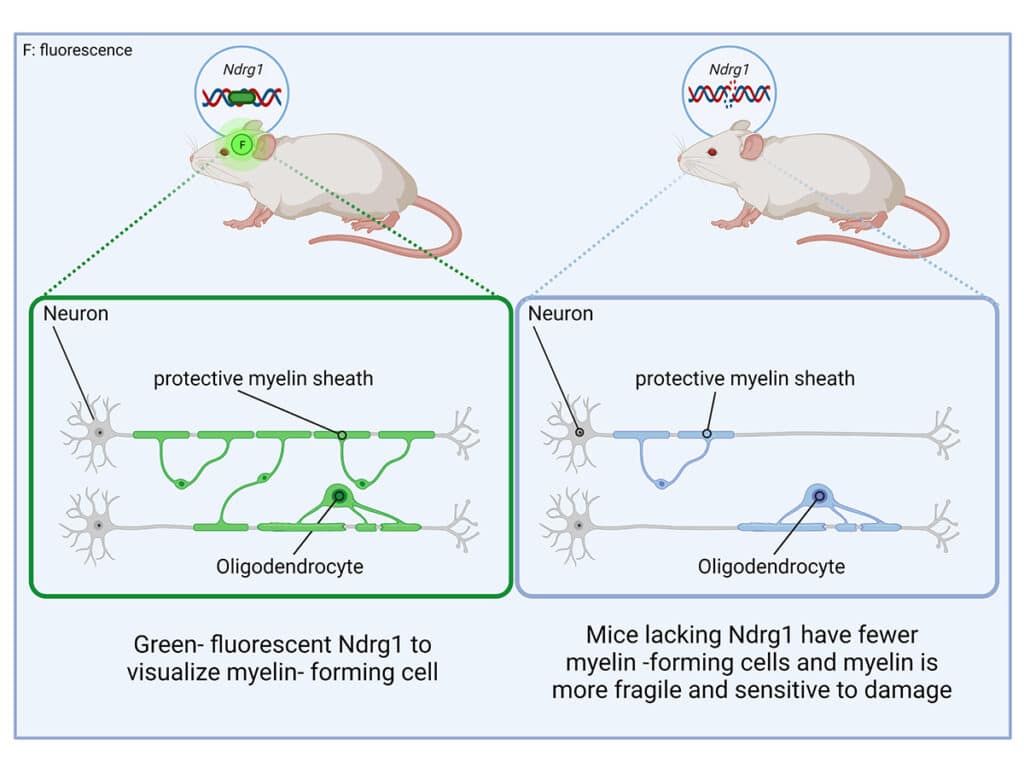Posted on December 9, 2021 in ASRC News, Neuroscience Initiative
By Lida Tunesi
The myelin sheath insulates nerves so that electrical signals can travel efficiently through the nervous system. In patients with multiple sclerosis, the immune system attacks myelin, resulting in a range of symptoms from numbness in the limbs to a loss of vision.
A new paper by researchers from the lab of CUNY Graduate Center Professor Patrizia Casaccia (Biology, Biochemistry) founding director of the Neuroscience Initiative at the Advanced Science Research Center at the Graduate Center, CUNY, may give new insight into how and why multiple sclerosis progresses.
In the study, published in Glia, the researchers report that the protein N-myc downstream regulated gene family member 1, or NDRG1, is a regulator of myelin synthesis in the brain and is important for the maintenance and integrity of the myelin sheath.
In a study published in 2014, Casaccia and collaborators discovered that in the brains of people with multiple sclerosis the NDRG1 gene, which codes for the protein of the same name, had low transcription levels. The researchers did not know, however, what the protein’s function was.
The new results show that in healthy brains there are high levels of the NDRG1 protein in oligodendrocytes, a type of cell responsible for making myelin. The researchers suggest that specifically, the NDRG1 protein helps stabilize other proteins that are important for myelination and without it, those proteins become more sensitive to degradation.

The findings could help fill a gap in scientists’ understanding of multiple sclerosis.
“We know that the immune system attacks myelin,” Casaccia said. “However, we do not know why with aging, more myelin is lost even though the immune system is under control. Our data provide an explanation, because as the expression of the NDRG1 gene is silenced and the cells no longer make this protein, the myelin sheath becomes more fragile.”
For this work, the researchers also developed a lineage of mice that produce a fluorescent green protein in all cells that express the NDRG1 gene, which could be a valuable tool for other scientists studying myelin-forming cells in the adult brain.
However, it is still unclear what silences the NDRG1 gene in some brains, a question that Casaccia said could be the focus of future investigations.
